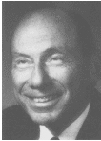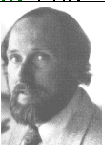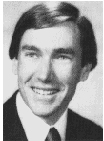JCO Retirement Survey
This survey of orthodontic retirees is believed to be the first quantitative picture of their demographics, activities, financial status, and attitudes toward retirement. The survey questionnaire was mailed Sept. 9 to all identifiable retired U.S. orthodontists--a total of 728. By Oct. 31, 135 questionnaires had been returned, for a response rate of 18.5%. Though the sample is small, the size of the response should insure reasonably accurate data.Analysis was performed using the Statistical Package for the Social Sciences at the University of Colorado Computing Center. Medians are reported rather than means when averages are shown. The median is the figure above and below which exactly 50% of the responses fall. The mean is the arithmetical average, and thus can be more influenced by extreme responses.
General Information
Not surprisingly, the median retirement age was 65 (Table 1). The median year of retirement was 1982, meaning the average respondent is now 69 years old. Respondents had been In orthodontic practice for a median of 32 years. The average retiree was male, married, and living in a house that he owned.
More than two-thirds of the sample said they had retired according to plan, and that they had planned for a median of six years before retiring (Table 2). About a third retired for reasons such as ill health, financial security, being tired of practice, or practice decline.
Those who retired in their home towns were distributed similarly to the general population (Table 3). An overwhelming majority of those who moved after retirement were located in the Sun Belt, the South Atlantic, Pacific, and Mountain regions. Overall, about 62% stayed in their home towns.
Retirement Activities
Respondents reported a wide array of activities (Tables 4 and 5); not one respondent checked "none". Sports and recreation, travel, and hobbies were mentioned by a majority of respondents. Smaller numbers were involved in volunteer work, business, outside employment, teaching, and part-time orthodontic practice.Table 5 shows the actual number of respondents mentioning each item. Church and religious activities were the most popular volunteer work, followed by civic activities and clubs. Most of those in business were managing their own investments or real estate. A few respondents were employed in dental consulting, real estate, teaching, or health and recreation. Other activities mentioned were going to school and writing. Fishing, golf, gardening, and painting, sculpture, or art were the sports and hobbies most often mentioned.
Nearly three-quarters of the sample said they maintained an interest in orthodontics (Table 6). Most of these did so by reading, but some still attended meetings or taught. The other ways to retain interest that were listed included visiting their former practices or other practices, inventing, and writing.
Financial Information
Respondents were generally satisfied with their economic level (Table 7). About two-thirds had a retirement equity of at least $500,000; only 3% considered their retirement funds inadequate. Annual retirement income of at least $50,000 was reported by about two-thirds, and only 1% considered this income inadequate. A somewhat greater number said final working year income was inadequate, which may not be surprising because this income was reported as only slightly higher than retirement income.
A wide variety of recommendations for financial planning were given. When these were categorized (Table 8), the highest number fell under the heading of safe investments, with slightly fewer under saving or living within income. Pension or profit sharing plans and real estate were also frequently mentioned. Though 11 respondents recommended obtaining professional advice, eight respondents thought making one's own investments was wiser. Comments included:




